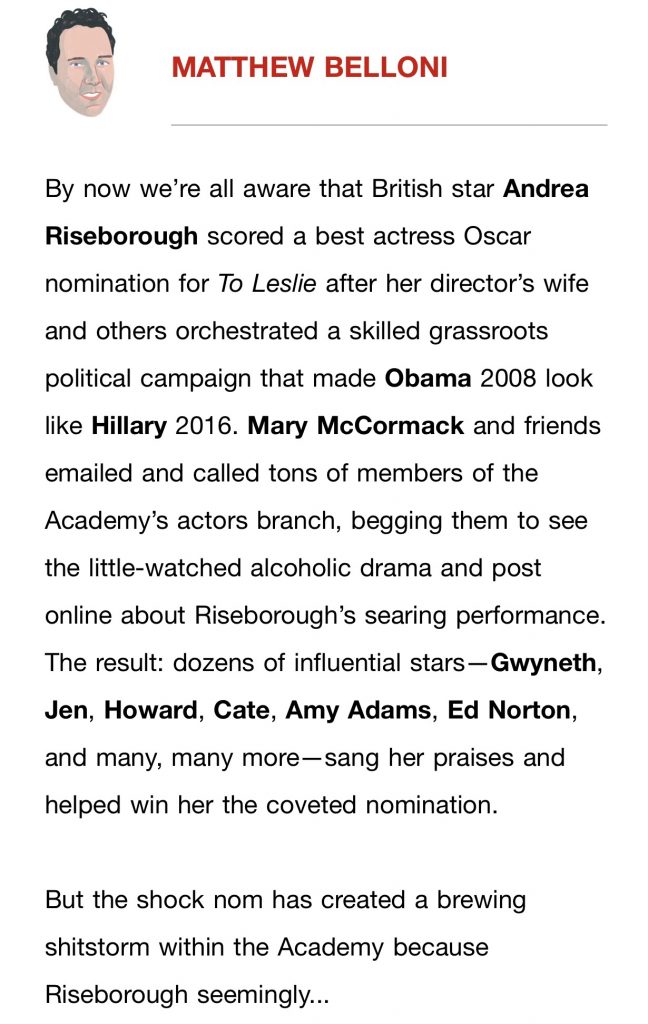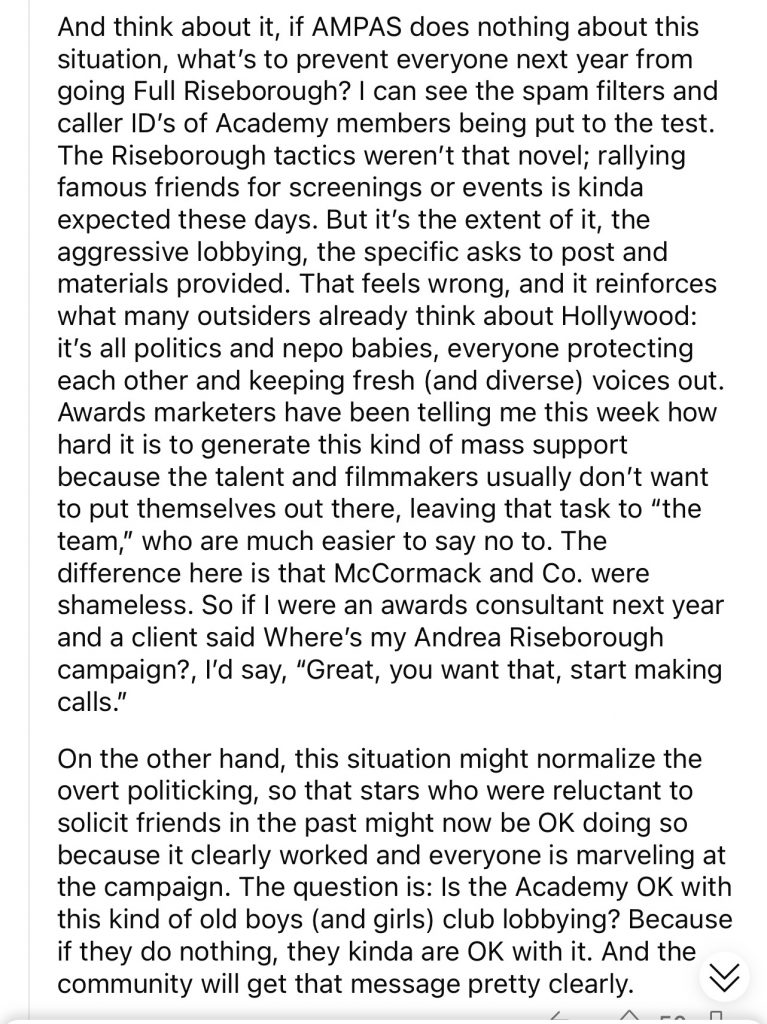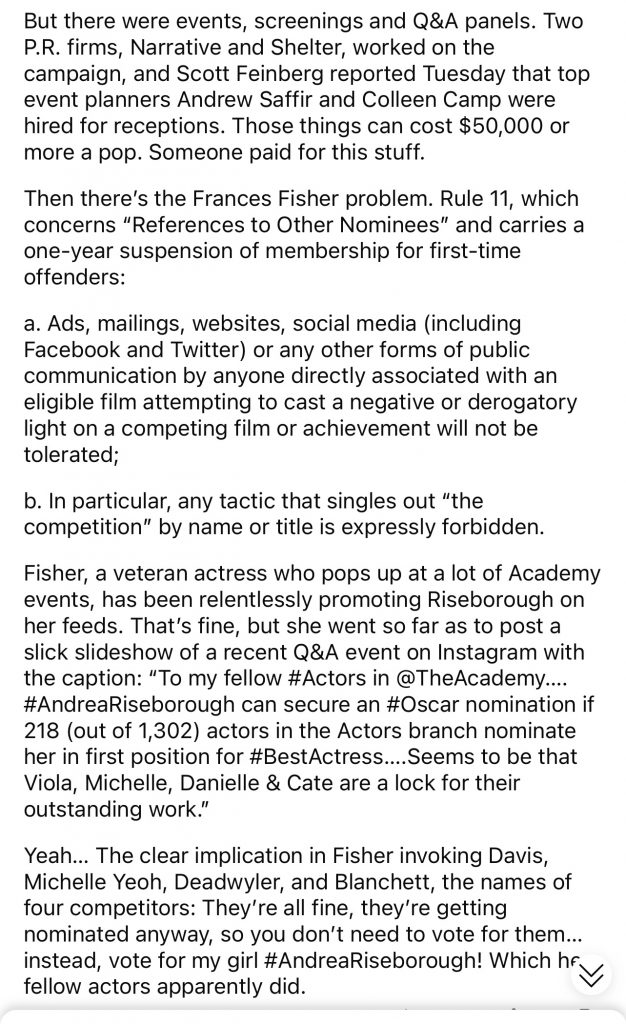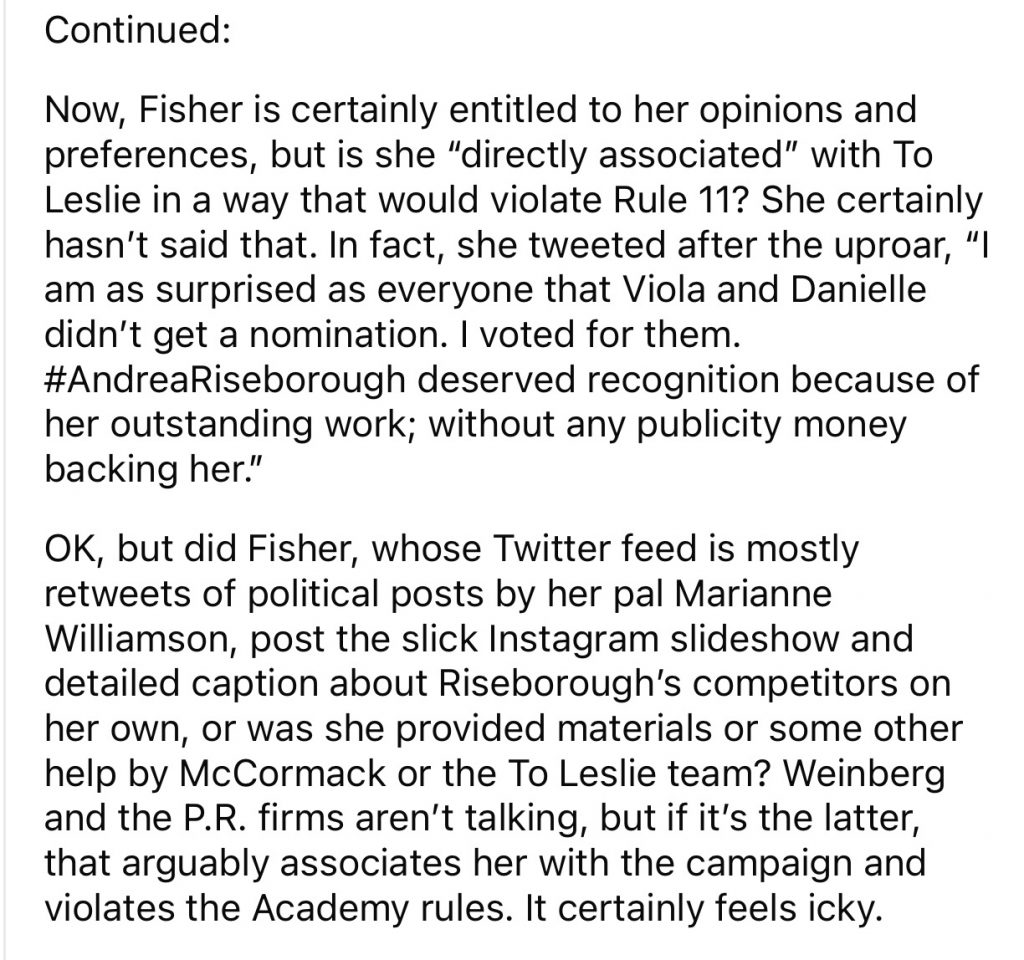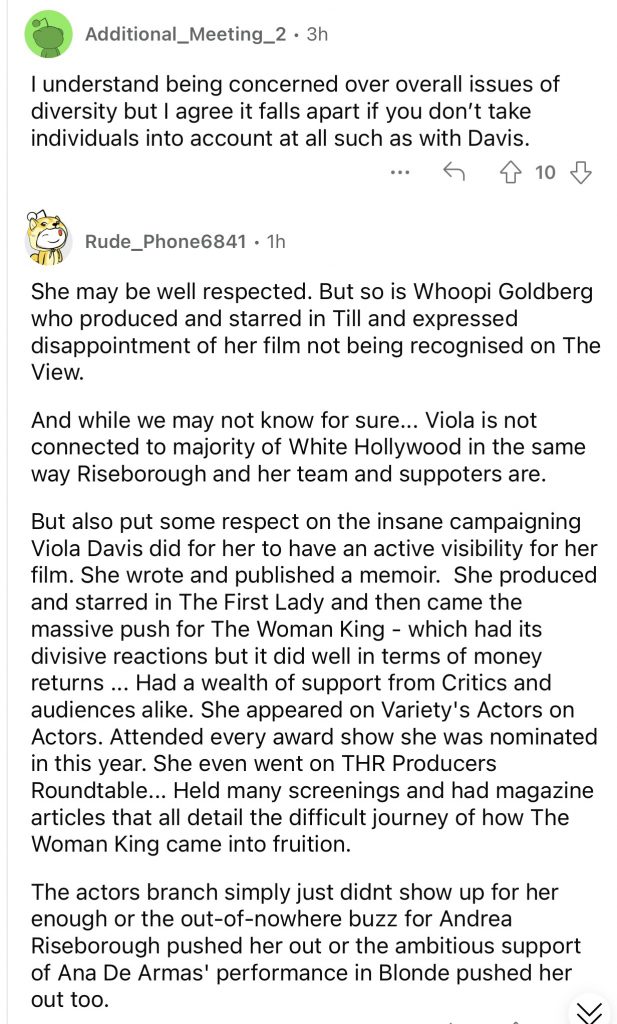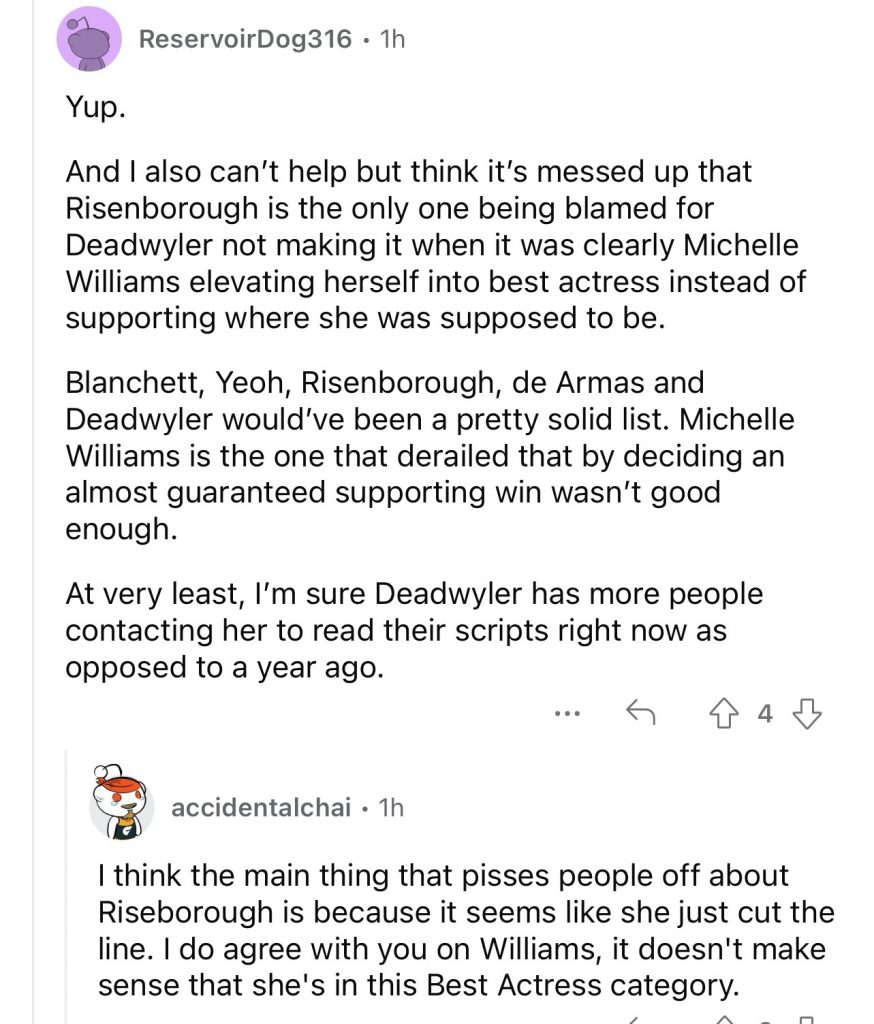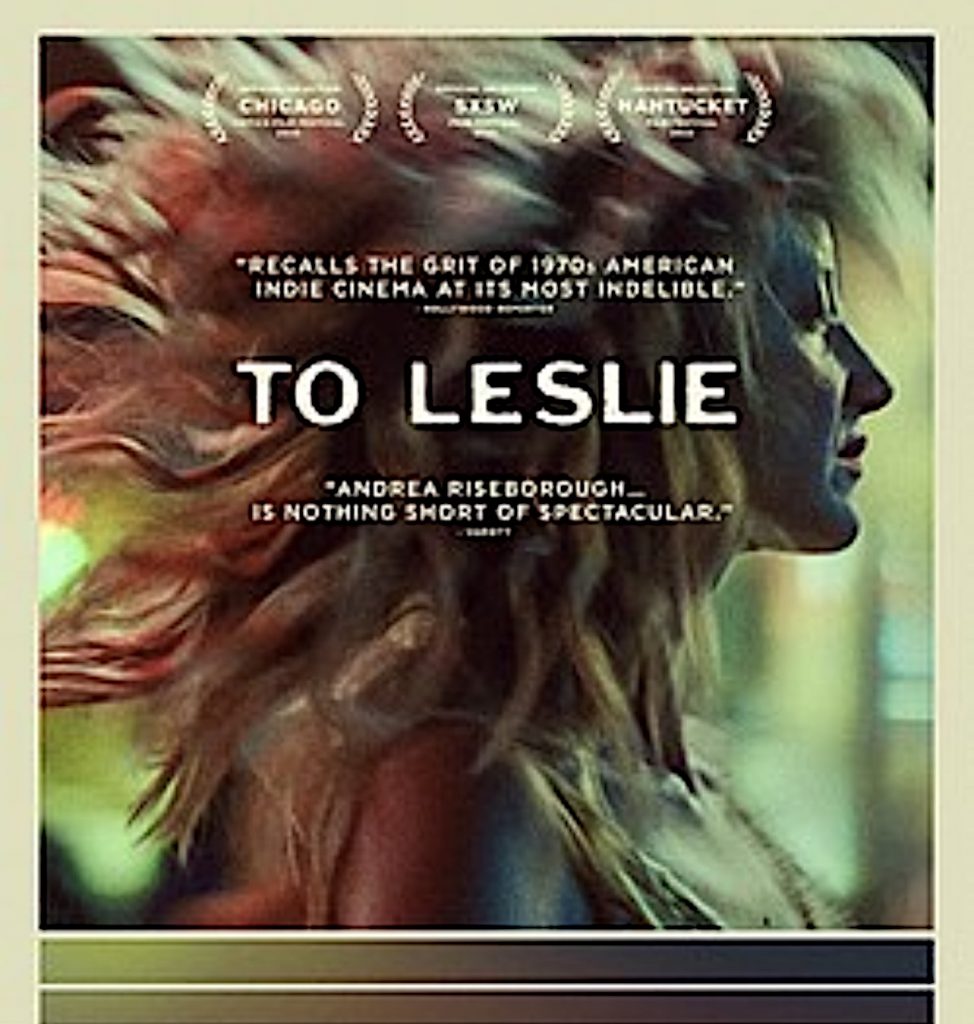As I’ve said two or three times, I didn’t feel a great deal of affection for or emotional alignment with Andrea Riseborough’s performance as an all-but-incorrigible drunk in To Leslie, which relatively few have seen. Released by Momentum Pictures on 10.7.22, the film has earned a bit more than $27K so far.
To Leslie is, however, being re-released this weekend in the wake of Riseborough landing a Best Actress nomination, which was totally surprising and seat-of-the-pants. But there’s an odd (do I mean oddly hysterical?) side angle to this.
Hold onto your hats, but certain industry voices and at least one industry analyst are viewing the Riseborough insurgency with a degree of SJW alarm, suggesting that there was something (no invention or exaggeration) bluntly racist about it. “Racially-tinged cronyism”! A grass-roots campaign fortified by “a network of powerful (and, let’s be honest, white) friends in the Academy”!
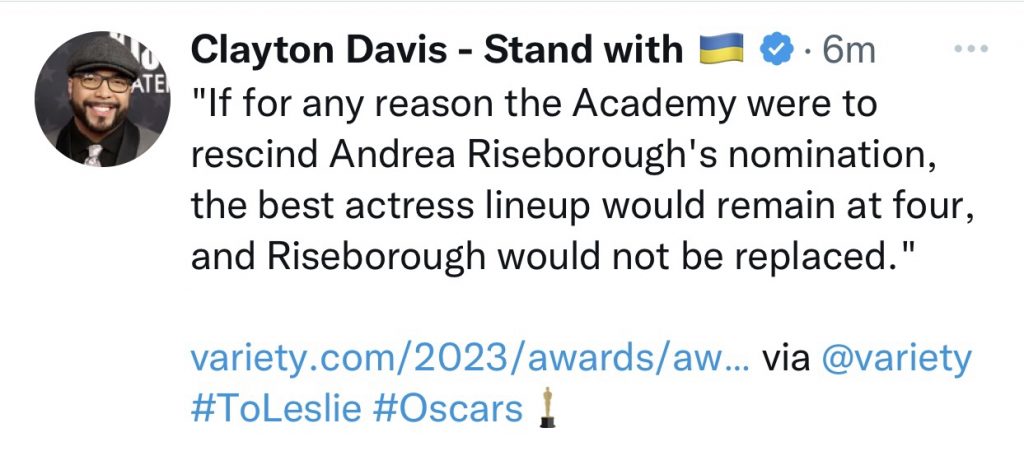
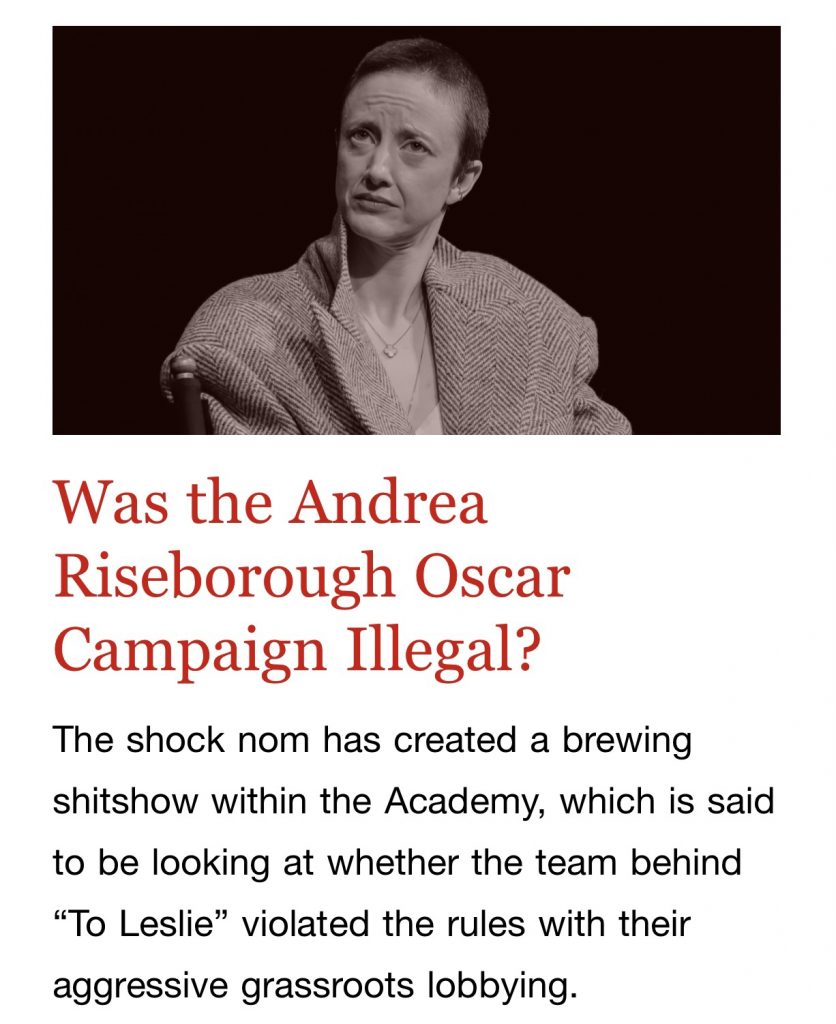
From Matthew Belloni’s latest “What I’m Hearing” column:
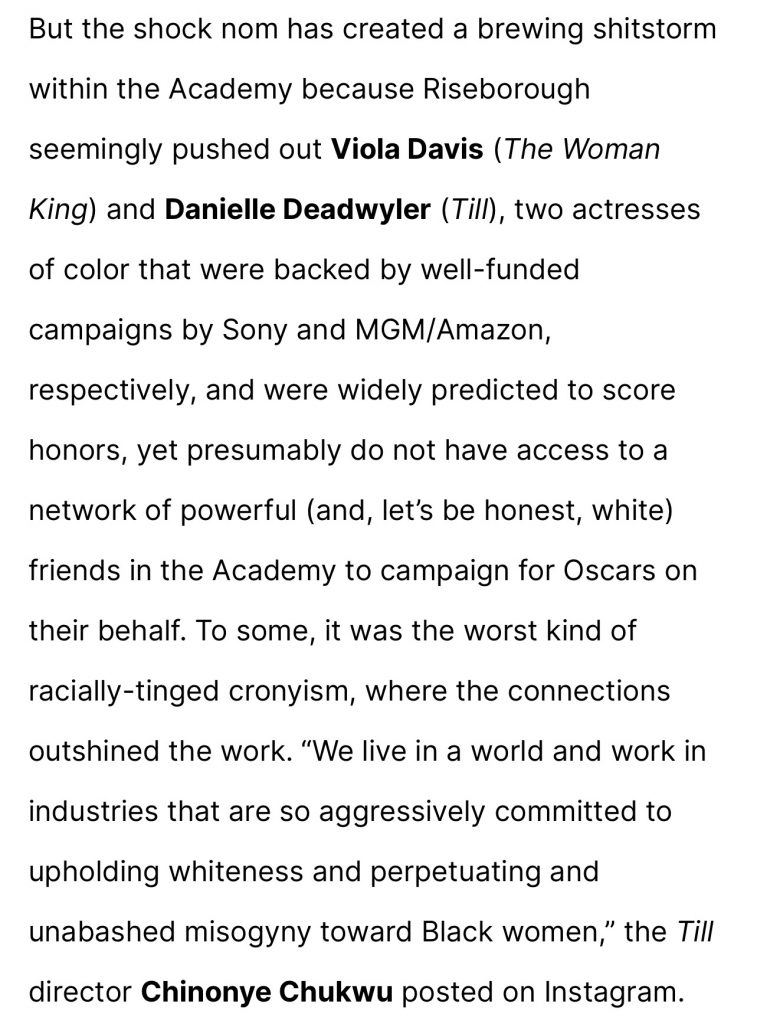
If you have any sporting blood you have to at least half-admire the fact that Team Riseborough (led by actress Mary McCormack, wife of To Leslie director Michael Morris, with vigorous assistance from Frances Fisher) managed to land Riseborough a Best Actress nomination. They basically mounted a grass-roots social-network campaign, but one that may have been “illegal,” according to Belloni.
If the general consensus was, in an alternate universe, that the Riseborough campaign had elbowed aside a couple of deserving paleface actresses instead of Viola Davis and Danielle Deadwyler, does anyone think that Belloni or anyone else would be talking about illegality?
Renegade Oscar campaigns go all the way back to The Alamo’s Chill Wills. It’s sometimes a rough and tumble game, and there are always questions and quibbles about tactics and line-crossings. But from this moment on, Andrea Riseborough is a name, a star, even a legend.
